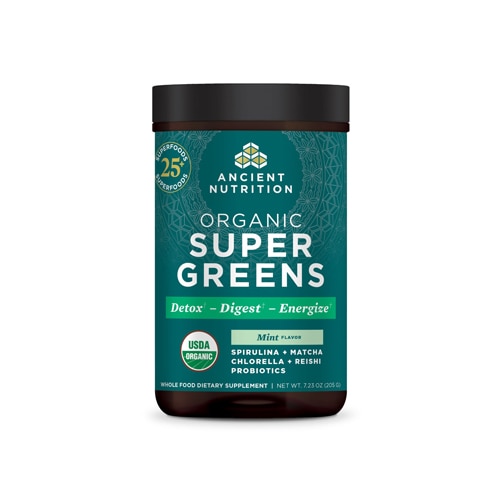[vc_row][vc_column][vc_column_text]At some point, many people taking
supplements decide they either don’t need or want to take them any longer. But is it safe to abruptly stop taking supplements? Or is a tapered approach to quitting a better idea?
According to experts, “supplement withdrawal” side effects may be a real thing to consider when changing your supplement routine. These can potentially include symptoms like fatigue, headaches and digestive changes.

Whether you’re looking to change the type of supplements you take, or you want to stop altogether, there are some best practices you’ll want to keep in mind.
Side effects of quitting supplements cold turkey
What types of supplement withdrawal side effects are possible when you quit taking things like vitamins, minerals, adaptogens or pre-workout formulas?
Depending on how you stop using them, how long you’ve been taking them, and your individual reaction, side effects may include:
- Low energy, fatigue and lethargy
- Muscle weakness
- Poor concentration
- Mood changes
- Sleep-related issues
- Digestive issues such as constipation
- Weakened immune system
Which supplements are most likely to cause withdrawal?
Because they often contain stimulants such as caffeine, typically along with other nutrients and herbs, “energy supplements” or “brain boosters” may be most likely to cause side effects when you give them up. Once your body becomes accustomed to the boost in energy that these provide, you may experience a lull, brain-fog or mood changes once they’re no longer in your system.
†
Other types of supplements that you might want to reconsider quitting “cold turkey” include:
- Sleep-enhancing formulas that contain herbs such as ashwagandha, valerian or melatonin. No longer taking these could possibly cause restlessness or other sleep issues.†
- Mood-altering herbs such as St. John’s Wort or 5HTP. If you find that these help lift your mood, ending their use can potentially lead to mood fluctuations.†
How should you stop using supplements to avoid feeling crummy?
Ideally it’s best to quit gradually in order to give your body a chance to adjust. You’re least likely to struggle through the withdrawal process if you take several weeks to decrease how much you take.
If you have any known
deficiencies — for example in a nutrient such as vitamin D, iron or vitamin B12 — then it’s wise to discuss supplementation plans with your doctor in order to avoid any health issues.
Switching to a new supplement? What to consider
More interested in switching to a
different type of supplement instead of one you’re currently taking? Then you’re probably less likely to experience side effects. Of course this can vary from person to person.
Generally speaking, it’s best not to transition from taking high doses of one nutrient (such as zinc) right to taking high doses of another. Taking a
multivitamin daily can help take care of this issue. It’s also a good idea to start with a lower dose of most supplements and to gradually increase as you test your reaction.
Again, be sure not to drastically change your supplement routine if you’re deficient in a specific nutrient. If you’re not, and just want to experiment with taking something new, here are some suggestions:
- Consider transitioning from a single B vitamin (such as B12) to a B complex formula instead, this way you cover broader nutrient needs.
- If you supplement to support your immune system, such as with vitamin C, try something like zinc and probiotics instead (or all three) for similar benefits.
- If you’re looking to gain more energy, consider adding iron to your routine if you’re not already (plus B12 if you’re a plant-based dieter). Other potential supplements to help with energy include ashwagandha and functional mushrooms such as Lion’s Mane.
Supplements to avoid taking long-term
There are some nutrients and herbs that it’s best to take for shorter durations rather than an extended time period. To prevent your body from becoming too dependent on them, don’t take these supplements long-term unless you’re working with a healthcare provider:
- Laxatives (even “natural” types like senna)
- Stimulants, such as guarana
- John’s Wort
- Adaptogens such as rhodiola or valerian (typically they’re taken for about 3 to 6 moths before breaking for several months)
- Kava
- High doses of calcium
- High doses of vitamin A
- Soy isolates/phytoestrogens
- Herbs that can affect hormone levels such as black cohosh and chasteberry
†These statements have not been approved by the Food and Drug Administration. These products are not intended to diagnose, treat, cure or prevent disease.[/vc_column_text][/vc_column][/vc_row][vc_row][vc_column][vc_text_separator title="Featured Products" border_width="2"][vc_row_inner equal_height="yes" content_placement="middle" gap="15"][vc_column_inner width="1/5"][/vc_column_inner][vc_column_inner width="1/5"][vc_single_image image="161551" img_size="full" alignment="center" onclick="custom_link" img_link_target="_blank" css=".vc_custom_1659655847849{padding-right: 7% !important;padding-left: 7% !important;}" link="https://www.vitacost.com/ancient-nutrition-womens-fermented-multi"][/vc_column_inner][vc_column_inner width="1/5"][vc_single_image image="161550" img_size="full" alignment="center" onclick="custom_link" img_link_target="_blank" css=".vc_custom_1659655866548{padding-right: 7% !important;padding-left: 7% !important;}" link="https://www.vitacost.com/ancient-nutrition-organic-super-greens-mint"][/vc_column_inner][vc_column_inner width="1/5"][vc_single_image image="161549" img_size="full" alignment="center" onclick="custom_link" img_link_target="_blank" css=".vc_custom_1659655884921{padding-right: 7% !important;padding-left: 7% !important;}" link="https://www.vitacost.com/ancient-nutrition-multi-collagen-ultra-vanilla-chai"][/vc_column_inner][vc_column_inner width="1/5"][/vc_column_inner][/vc_row_inner][/vc_column][/vc_row]
 Whether you’re looking to change the type of supplements you take, or you want to stop altogether, there are some best practices you’ll want to keep in mind.
Whether you’re looking to change the type of supplements you take, or you want to stop altogether, there are some best practices you’ll want to keep in mind.



